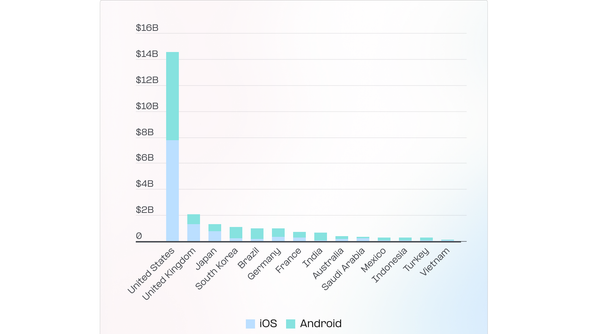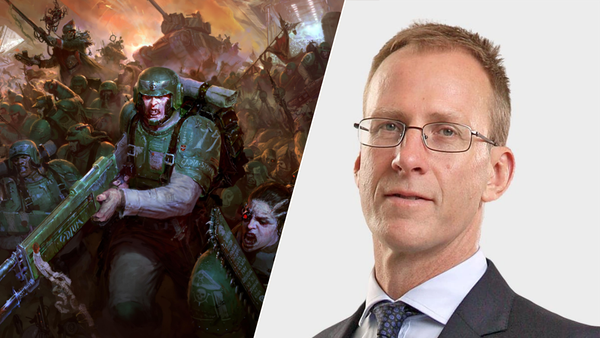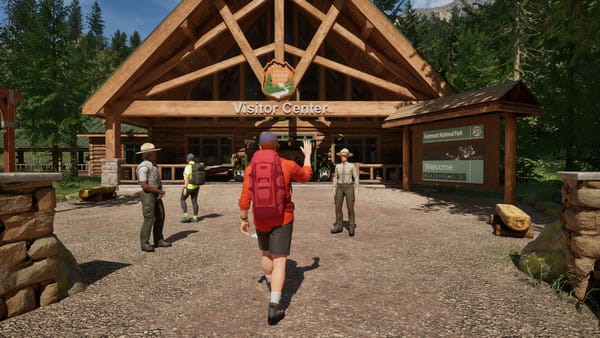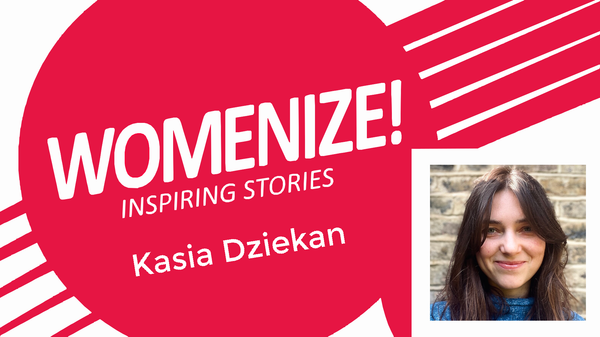Jump Space: "The Project Was Not at All Supposed to Be This Grand From the Beginning"



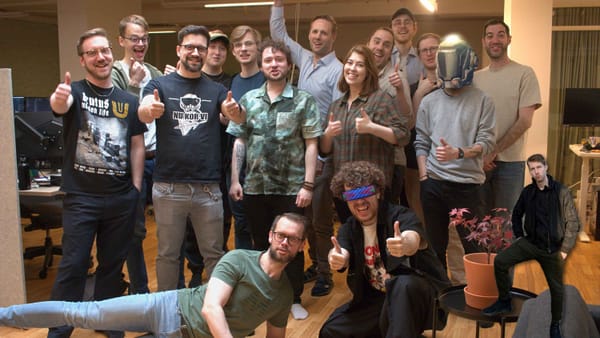
It's on over a million wishlists and is currently ranked 15th overall on Steam. Jump Space by Keepsake Games from Sweden. We spoke to Filip Coulianos, Co-Founder and Game Director, about the cooperative space adventure, its origins, the enthusiasm it has generated, and how it became "a not-so-small indie game".
Jump Space is the next indie hit in the making. The game, developed by Keepsake Games - a Swedish studio founded by veterans from Hazelight, Mojang, and Coffee Stain - is designed for co-op play and will be released on PC and Xbox Series X|S on 19 September 2025. Formerly known as Jump Ship, the game is a mission-based co-op PvE game in which players can transition seamlessly from crewing their very own spaceship to on-foot exploration and spacewalks. The aim of each mission is to survive with the ship intact and make the next jump, collecting valuable resources, blueprints and weapons along the way. And then the next run can begin …
First revealed in 2024, Jump Space attracted over 500,000 players at the recent June Steam Next Fest. More than one million players have now added the game to their Steam wishlists in anticipation of its release. The game certainly made a strong impression. We spoke to Filip Coulianos, Co-Founder and Game Director of Keepsake Games, about Jump Space. Prior to that, Coulianos was a Level Designer at Starbreeze (Brothers: A Tale of Two Sons & Syndicate), a Level Designer at DICE (Mirrors Edge Catalyst) and, for almost seven years, Lead Level Designer at Hazelight (A Way Out & It Takes Two).
GamesMarkt: How did the game come to be, given that it was originally a hobby side-project which unexpectedly exploded in popularity?
Filip Coulianos: "The project started sometime in 2012. I was new in the games industry as a level designer and wanted to learn more about game development and do things outside of what I did at work, so I started programming small games. During this time I found a game called Artemis Bridge Simulator, basically a Star Trek simulator built for LAN parties, a pretty cool concept I thought. That sparked the idea of making something more immersive where you could walk around inside the ship, leave it and explore on foot, as well as configure the ship with different components. I used this very basic idea to learn how to code networks, dust off my art knowledge, and decided to give it a go. It took quite a few years to both learn, experiment, and implement all the different concepts, but I managed to stay very consistent, working a couple of hours every day all the way up until 2019, when I decided to release the project as 'Hyperspace: Pirates of Atira,' more as a tech demo, together with a video explaining the game. It got much more traction than I thought it would. Thousands of people jumped into my Discord server on that late Sunday night and I had no one to help me out with administration. That moment sparked the idea that just maybe this could be turned into a commercial project one day."
GamesMarkt: When did you realise that it was time to start your own company? And who supported you financially during the development period?
Filip Coulianos: "At the time I was lead level designer at Hazelight during the end of the It Takes Two production. I felt that even though that production had been amazing and working at Hazelight from its founding days until the launch of It Takes Two was the best time of my life, I was at a crossroads where I would either stay for another project or try starting up Keepsake Games together with old friends in the industry who were at similar stages in their respective careers. We weren't sure if a moment where we would all be available would ever come again, so we decided to take the leap of faith about four and a half years ago. We found a private investor pretty quickly and from there it was all about setting up our small office in a basement and starting work on the game."
Keepsake Games was founded in Stockholm in 2021 by five veterans of the Swedish games industry: Daniel Kaplan (CEO; founding member of Mojang and co-founder of Coffee Stain Publishing), Filip Coulianos (Game director; founding member of Hazelight), Claes Engdal (Art director; founding member of Hazelight), Tobias Möllstam (Programmer; founding member of Mojang and tech director at Toca Boca) and Henrik Alfredsson (Lead Designer; Designer on Mirror's Edge and Product Owner at Toca Boca).
GamesMarkt: How did you manage to realise such a huge, ambitious project with such a small team?
Filip Coulianos: "The project was not at all supposed to be this grand from the beginning. We planned for something that would take us two years, require just the five of us founders and perhaps a couple of contractors. But as we started working on it and we realized its potential, together with our own abilities, it gradually expanded in size and complexity. At the time of writing we are about 16 employees and we have slowly been growing the team one by one throughout the years. It has been a gradual process where each individual has made their own mark on the game over time, so there was no real defining moment where it went from a very small indie game to a not-so-small indie game. I think in the end the magic sauce is to remove as much procedure, fluff, meetings, and corporate stuff as possible and make sure each developer spends as much time as possible doing what they are good at. Each and every one of us has so much more potential and talent than we think we have, so it is just about making sure everyone has the space (and sometimes a little encouragement) to realize that potential."
GamesMarkt: What are the secrets to designing co-op and multiplayer games??
Filip Coulianos: "Co-op requires teamwork, but good co-op also gives space for each player to be their own hero, master their own skills, and feel good about their own achievements. It is a balancing act of feeling needed by your teammate or teammates, but also strong as an individual. Speed and responsiveness are also very important. Games today in our genre need to be very fast and responsive. The pacing of a game can be much faster than many people realize."
GamesMarkt: Why did you decide to rename the game from Jump Ship to Jump Space?
Filip Coulianos: "The renaming was quite an unfortunate situation and not something we had planned or wanted. We got contacted by someone who had the trademark rights to Jump Ship so we had to change. We quickly change gears and put the name change as our top priority. That was it. No time for drama, just get your head down and focus on moving forward."
GamesMarkt: How are you handling the huge interest in the game? After all, it's on over a million wish lists!
Filip Coulianos: "It is quite strange, to be honest. If you were a rock band, you would see the progression going from small venues to big arenas when performing, but for us devs it is not like that at all. We sit in the same basement we did from the start and all that hype basically boils down to numbers on our screens, that is it. No drama, no crazy parties, just work 9 to 5. We are sure the game will do well, but at the same time I am still in a bit of disbelief, and the future is still quite unknown. Being ranked as high as we are is not necessarily a guarantee for success."
GamesMarkt: What role did the demo at Steam Next Fest play in developing and marketing Jump Space?
Filip Coulianos: "It played a huge role. I was a bit reluctant to push for a demo in the beginning. Demos tend to take up quite a bit of time to put together and I was concerned that it might take too much attention away from the final product. I am glad I agreed to making the demo though."
"It turned out to be an extremely positive experience, both because we got confirmation that we are making a great game, a game that people want to play, but also because it was an important training exercise in how to support a live product. We managed to respond to feedback from players within 24 hours and got patches out almost daily throughout that period. We also got some very valuable feedback about certain things that we had time to fix prior to the early access launch, such as persistent items that you keep in between missions, that we would otherwise have shipped with. With 530,000+ unique players we also confirmed that the backend and all that stuff held up and the game ran smoothly enough, while also getting the exposure and having our game out there for people to try out. That was an incredible lesson learned that I will keep with me for all subsequent projects."
Never miss anything from the German, Swiss and Austrian games industry again: subscribe for free to our Daily newsletter and get all news straight to your inbox.

